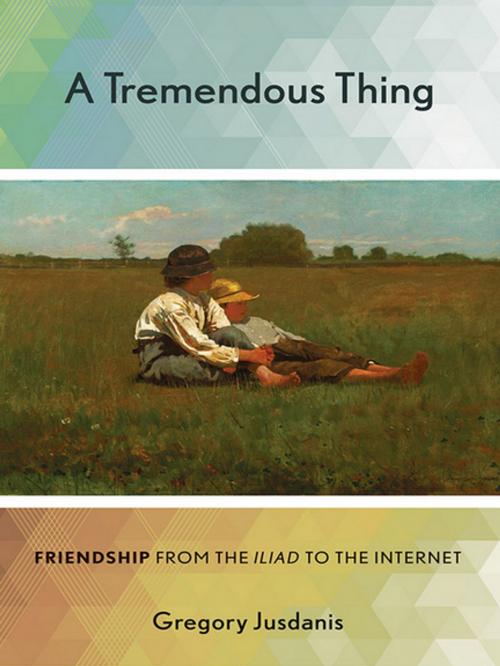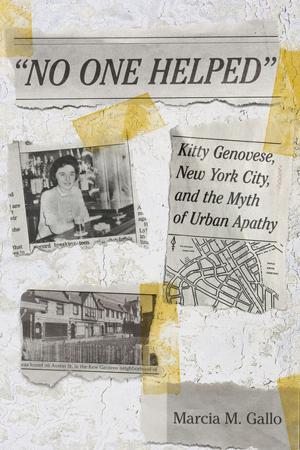A Tremendous Thing
Friendship from the "Iliad" to the Internet
Nonfiction, Family & Relationships, Relationships, Friendship, Social & Cultural Studies, Social Science, Sociology, Fiction & Literature, Literary Theory & Criticism| Author: | Gregory Jusdanis | ISBN: | 9780801454745 |
| Publisher: | Cornell University Press | Publication: | December 18, 2014 |
| Imprint: | Cornell University Press | Language: | English |
| Author: | Gregory Jusdanis |
| ISBN: | 9780801454745 |
| Publisher: | Cornell University Press |
| Publication: | December 18, 2014 |
| Imprint: | Cornell University Press |
| Language: | English |
"Why did you do all this for me?" Wilbur asked. "I don't deserve it. I've never done anything for you."
"You have been my friend," replied Charlotte. "That in itself is a tremendous thing."
—from Charlotte’s Web by E. B. White
Friendship encompasses a wide range of social bonds, from playground companionship and wartime camaraderie to modern marriages and Facebook links. For many, friendship is more meaningful than familial ties. And yet it is our least codified relationship, with no legal standing or bureaucratic definition. In A Tremendous Thing, Gregory Jusdanis explores the complex, sometimes contradictory nature of friendship, reclaiming its importance in both society and the humanities today. Ranging widely in his discussion, he looks at the art of friendship and friendship in art, finding a compelling link between our need for friends and our engagement with fiction. Both, he contends, necessitate the possibility of entering invented worlds, of reading the minds of others, and of learning to live with people.
Investigating the ethics, aesthetics, and politics of friendship, Jusdanis draws from the earliest writings to the present, from the Epic of Gilgamesh and the Iliad to Charlotte’s Web and "Brokeback Mountain," as well as from philosophy, sociology, evolutionary biology, psychology, and political theory. He asks: What makes friends stay together? Why do we associate friendship with mourning? Does friendship contribute to the formation of political communities? Can friends desire each other? The history of friendship demonstrates that human beings are a mutually supportive species with an innate aptitude to envision and create ties with others. At a time when we are confronted by war, economic inequality, and climate change, Jusdanis suggests that we reclaim friendship to harness our capacity for cooperation and empathy.
"Why did you do all this for me?" Wilbur asked. "I don't deserve it. I've never done anything for you."
"You have been my friend," replied Charlotte. "That in itself is a tremendous thing."
—from Charlotte’s Web by E. B. White
Friendship encompasses a wide range of social bonds, from playground companionship and wartime camaraderie to modern marriages and Facebook links. For many, friendship is more meaningful than familial ties. And yet it is our least codified relationship, with no legal standing or bureaucratic definition. In A Tremendous Thing, Gregory Jusdanis explores the complex, sometimes contradictory nature of friendship, reclaiming its importance in both society and the humanities today. Ranging widely in his discussion, he looks at the art of friendship and friendship in art, finding a compelling link between our need for friends and our engagement with fiction. Both, he contends, necessitate the possibility of entering invented worlds, of reading the minds of others, and of learning to live with people.
Investigating the ethics, aesthetics, and politics of friendship, Jusdanis draws from the earliest writings to the present, from the Epic of Gilgamesh and the Iliad to Charlotte’s Web and "Brokeback Mountain," as well as from philosophy, sociology, evolutionary biology, psychology, and political theory. He asks: What makes friends stay together? Why do we associate friendship with mourning? Does friendship contribute to the formation of political communities? Can friends desire each other? The history of friendship demonstrates that human beings are a mutually supportive species with an innate aptitude to envision and create ties with others. At a time when we are confronted by war, economic inequality, and climate change, Jusdanis suggests that we reclaim friendship to harness our capacity for cooperation and empathy.















